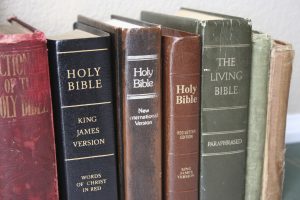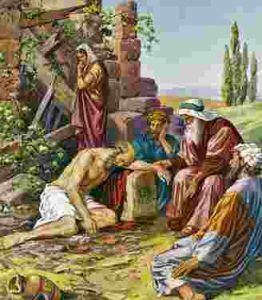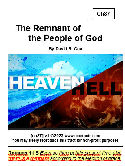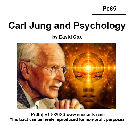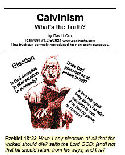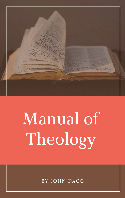Cults are dangerous period. There are no “good cults”. All cults work against the form and susbstance that God gives us to work towards, so there is nothing good in cults. But many people are in cults or cultic and abusive churches, and they don’t understand that what they see as “good” is not really good at all. But when a group turns against the Bible doctrine of Soul Liberty (that God has given each individual the ability to discern and decide God’s will in his or her own life) then the group gets “ugly”. By ugly I mean that they get quickly identified as a cult by outsiders.
Definition of Soul Liberty
Rom 14:4 “To his own Master he standeth or falleth.”
Romans 14:12 “So then every one of us shall give account of himself to God.”
2Cor 5:10 “So, then, every one of us must give account of himself to God.“
Joshua 24:15 “And if it seem evil unto you to serve the LORD, choose you this day whom ye will serve; whether the gods which your fathers served that were on the other side of the flood, or the gods of the Amorites, in whose land ye dwell: but as for me and my house, we will serve the LORD.”
“Every individual, whether a believer or an unbeliever, has the liberty to choose what their conscience or soul decides is right in the religious realm. This also involves the personal and individual accountability of each person before God.” (North Eulalia Baptist Church)
The concept of “soul liberty” is that between God’s inspired Word, the Bible, our conscience which is manipulated, influenced, and guided by the Holy Spirit, God gives us the resolution to our problems and allows us to individually and without “THE NEED” of other people to enter into our decision making process. While soul liberty defends the “right” of the believer to make his own decisions with the help of God, there are legitimate exceptions.
Soul Liberty is the deep conviction that every man or woman can enter into direct relationship to God without outside mediation… “It is easy for us to yield our integrity and responsibility to some accepted authority: beloved pastor, honored teacher, influential book-even an edition of the Bible, respected parents or dynamic church. These all have their proper role of influence, but the final choice of belief and practice must be made in the secret of the soul’s naked presence before God alone.” – Brownlow Hastings, 1981 taken from firstbaptist-slc.org
This liberty is given to us by Christ in order for us to better serve God, not to run around pleasing ourselves. 1Pet. 2:16
Husband-Wife – The Bible clearly sets the man as the leader in the home, responsible for the major decisions of the household. But at the same time, a marriage is a partnership, so soul liberty should not be used to exclude the wife from decisions.
Parents-Children – In a family, the parents are the responsible parties for the family until the children are of age and move out. Soul liberty should not be used by children to override their parents’ decision making responsibility.
Employee-Employer – While we have liberty to make our own decisions, when we enter the workforce, we enter work obligations, so soul liberty should not be used in the case of an employee which wishes to overrule his employers orders.
Calvinism and Soul Liberty – With Calvinism overrunning most of Christianity in the last decade or two, it is no wonder that nobody hears of this doctrine. Calvinism fights against any kind of liberty of the soul to act, because they teach one is a preprogrammed puppet, and you cannot be a moral independent agent.
Discerning True, Biblical Soul Liberty
The issue of soul liberty is to refuse the forcing of other people under the control of somebody else. Church leaders can exhort strongly that all should believe and practice what is clearly dictated in the Bible. This does not impinge on soul liberty. But soul liberty is best seen when the leader wants some belief, practice, or particular decision in the church context, and he has no biblical basis for that. If the force of his desire gets him what he wants, and if his desire is not shared by the others that are really paying for it, then there is no soul liberty. Soul liberty is to not force things when there is no clear, valid expositionally correct reasoning based on Scripture for doing something.
Biblical Church: Leadership “suggests” with reasoning based on scriptural principles, but accepts the general consensus of what God’s will is for a particular issue.
Biblical Church: Leadership never “budges” from the clear teaching of Scripture, and never insists to the point of dissension, disunity, and conflict or hard feelings when Scripture is not forcefully clear on the issue.
Cults: The will of the leadership is the same as God speaking from heaven, so normally there is no open discussion, and never is there a vote unless they have rigged it somehow.
Recognizing Elements of Manipulation and Control
Unquestioning commitment and loyalty to a domineering leader.
The person of the leader is very much in focus usually in a cult. There are cults that are raised up on a cultic personality of a charismatic leader, and there are cults that a group of men form, basically taken laid back roles in the group. The obvious is often overlooked. The leader is an “antichrist”. The concept of an “anti-” something comes from the Greek anti, and means someone who takes the place of or is positioned opposite or overpowering some thing or person. So an “antichrist” is somebody who takes the place of Christ. Instead of focusing on being like Christ, the cult focuses on a human substitute, the charismatic leader.
Use of Fear and Intimidation
Cults are people that are very manipulative. The longer they are at this, the better their control of others. They instill fear instead of respect and honor. They position themselves as the very representation of God on earth, so any disagreement with them is like telling God that you disagree with Him. They heavily teach their authority over any others.
Examples – Watchman Nee wrote a book, Spiritual Authority, (if your church requires you to study and read this book, it is most probably a cult) in which he proposes that the local church’s leaders are the members only biblical authority, and if these men ask you to do something unbiblical, then you are to do it, and the blame is put on them, not you. Unlimited submission to human leadership is a common among cults. Nee also taught that each Christian needs “a covering” which is a term for an earthly authority over them, and that Christian shoul dgive blanket unquestioning submission to that authority. This goes beyond the realm of religion, belief, and moral conduct, and extends to secular matters such as marriage, marriage partners, employment, living conditions and quarters, etc. All those had to be approved by a person’s spiritual covering.
Objections and disagreements not allowed.
In general, the members of a group should not be constantly opposing almost everything the group and the group leaders is doing. If that is the situation, the church member should find another church to attend. Having said that, most cults do not admit ANY DISSENSION AT ALL, and there is great social and psychological pressure against any differing opinions.
The point here is not to maintain unity of the church members, but rather to maintain the control of the church leadership over the group. Calling dissenters by names, publicly embarrassing them, or using other tactics to “silence them” are typical in a cult.
A true church of God will hear out differing opinions. The leadership may not follow every dissenting opinion, but they will always be respectful, couretous, and giving them a hearing in some way.
Many times in cults, the members of the cult actually know a good bit of the Bible, and this is a problem when the cult clearly disobeys the Bible. Some member will point this out and become the center of scorn. The leaders and their puppets will “rationalize” incorrect behavior in the light of the Bible, and this is where in a true church, both members and leaders will look to the authority of the Bible to define what is right and what is wrong. Cults also do this when it is to their favor. For example, if the leader steals from the church funds or diverts them, then it is rationalized. If a member steals, then they will quote the Bible condemning the person for theft.
Deceptive and Lying Baptists
Soul liberty is a key essential in being Baptist, but there has come on the scene a generation of Baptist churches and Baptist preachers who have never once preached on Soul Liberty, and that is because at their heart, they are Baptist cults. (Read here allaboutBaptists.com excellent 5 paragraph article on Individual Soul Liberty.)
These Baptist cults teach and preach control and submission by their leaders. They keep their people in tight rein under the group and leaders. They teach that the Holy Spirit is not sufficient (though not in so many words) because they teach that only those who have a higher education in Bible, learning Greek, Hebrew, theology, etc. can really interpret and understand the Bible.
1 John 2:27 “But the anointing which ye have received of him abideth in you, and ye need not that any man teach you: but as the same anointing teacheth you of all things, and is truth, and is no lie, and even as it hath taught you, ye shall abide in him.”


